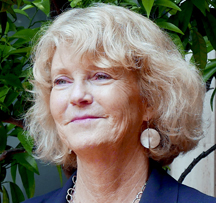Food Systems Podcast 61
In discussion with Ann Tutwiler
Monday, Sep 30, 2024
In this episode, we talk with Ann Tutwiler, Chair of the Global Alliance for Improved Nutrition, former Director-General of Bioversity International and member of the Forum for the Future of Agriculture Advisory Council. Ann explains how she is convinced that agriculture must show that it is a system that is contributing towards the environment, improving nutrition and resilience to climate change, and also reducing the contribution of agriculture to greenhouse gas emissions.
Here is a summary of the conversation.
Many of us share a mission to build a more resilient, sustainable, climate-positive food system. How important is it to make that transition and why?
I can’t imagine anything more important than changing the perception of agriculture from being seen as a contributor to the world’s problems – diet, nutrition, climate change, environment, or greenhouse gas emissions – to being seen as contributing to improving all of those. A growing number of people inside and outside agriculture recognise how important this is, and it is becoming mainstream.
Where are we on the scale of progress, and what gives you cause for optimism?
Unlike 5 or 10 years ago, there are a lot of organisations – private sector, NGOs, UN, national governments – who understand how important this agenda is and are making concrete efforts to create market incentives for farmers to switch to a more regenerative, sustainable system. Consumers are changing too. Both on the demand side and the supply side, people are beginning to put their money where their mouths are.
The complexity and scale of the transition are often being talked about. What is your perspective on that, and what other challenges will we have to overcome?
Many developed countries with the money to support farmers through public policies are not devoting enough resources and not creating enough incentives for farmers to change their production systems and what they are planting. In the US, for example, there have been some programs, but they haven’t changed the focus of commodity growing. Farmers have been growing the same crops for years, their machinery is designed for those crops. It’s helpful that some private companies are prioritizing more sustainable, resilient systems. But governments are spending a lot of money that is keeping the system stuck in the old ways.
How important are events like New York Climate Week – where we are recording this podcast – and the UN General Assembly or COP 29 in driving change?
In the early days, these meetings were important. But now the people who attend are those who already understand what needs to be done – but they are not the people we need to convince.
Is the farmers’ voice missing at some of these meetings? How do you translate the conversations into action on the farm, when some farmers are just trying to get through the season and questioning if they will be in business next year?
There has been change in that it’s acknowledged that farmers must be at the table. And farmers are at the table, but maybe not as much as they should be. Five or ten years ago farmers were being blamed for all the problems, and I don’t see the level of negative condemnation of farmers that I saw in the past. Farmers want to be part of the solution, and they can be, but not if certain groups consistently blame them as the cause of the problems.
We’re in a year of political change, both in Europe and the US. How important is the US Presidential election to system transformation?
First, US agriculture is highly dependent on exports and both Republicans and Democrats have become more protectionist. Any moves to impose trade barriers and tariffs could come back to bite agriculture, for example on soybeans and other exports. Second, on the Republican side, there are still some who profess not to believe in climate change. Third, food assistance programs for poorer people are also important to farmers because they boost demand: some Republicans would roll back food assistance, while the Democrats hope to expand them. When it comes to improving diets for human health, and also to reduce healthcare costs, there is a stark difference between the parties.
You have now served on the Forum’s Advisory Council for a couple of months. From that viewpoint, how do we go about the coming year to progress our mission?
We need conversation about diversifying production systems. Farmers aren’t going to diversify what they’re producing until there’s a demand for that diversity in the marketplace. The links between dietary diversity and human health, and diverse production systems, are incredibly strong. And when you diversify crops it improves soil health, reduces pest pressure, and helps with climate change. Diversification is the sweet spot.
If you have found this short summary interesting, there’s lots more to hear in the full 20-minute conversation. It is available now on iTunes, Podbean or Spotify or on this website.

Ann Tutwiler
Ann Tutwiler is the Director General of Bioversity International, an international research for development organization that is a CGIAR...see more
